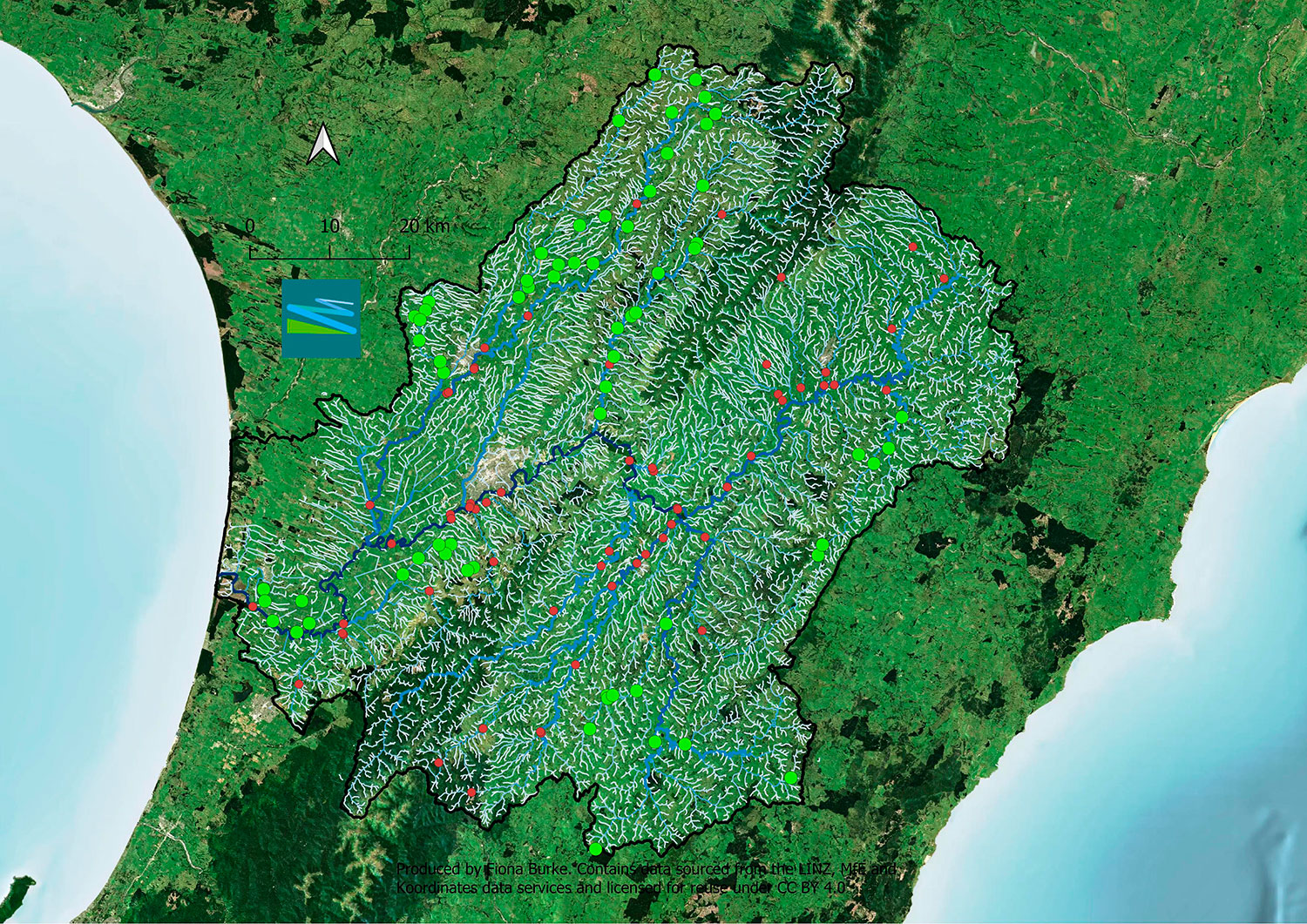What we do
Farmer-led catchment groups are joining forces to safeguard and improve the health of our waterways across the Tararua and Manawatū regions. These dedicated individuals have come together under the umbrella of the Manawatū River Catchments Collective (MRCC), a collective initiative established in late 2020. Their mission is clear: to maintain profitable and sustainable farming practices while nurturing a thriving and diverse ecosystem, all while fostering vibrant and connected communities.
One of the primary focuses of the MRCC is the collection of monthly water quality samples from 66 sites spread across all catchment groups. (Currently the MRCC has 11 active groups, with a plan to increase this number.) This concerted effort aims to gather trend and state data, enabling informed decision-making to improve water quality and biodiversity. By reducing sediment and nutrient flows into the river, the catchment groups are actively working to protect and enhance the delicate balance of the ecosystem.
Promoting restoration efforts
The MRCC plays an integral role in gaining additional funds for various restoration initiatives, including riparian planting and development of wetlands with support via educational workshops These projects not only serve to improve water quality but also foster a deeper understanding and appreciation for the importance of sustainable farming practices among local communities.
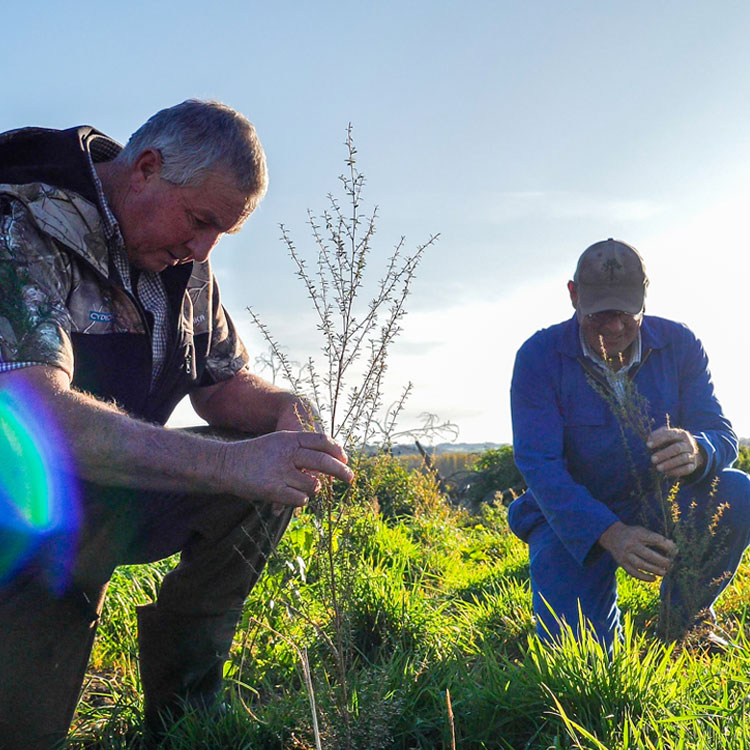
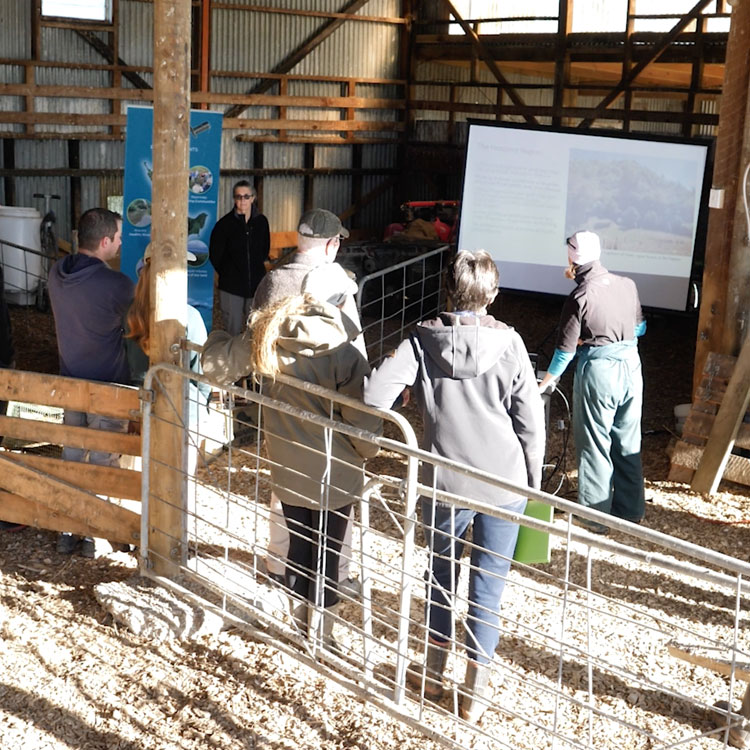
On farm projects and partnerships
In addition to their collective efforts the MRCC engages in on-farm projects and partnerships to tackle environmental challenges. Examples of such endeavours involves edge-of-field mitigation work in collaboration with Massey University. Currently, the MRCC is on the cusp of constructing demonstration and monitoring sites, showcasing innovative approaches to sustainable farming practices. Another project involves the identification and mapping of farmland suitable for detention bunds, a critical measure for managing water flows and preventing erosion. A third major project involves engaging catchment farmers in sampling and analysis of their water quality; shallow groundwaters and adjacent drains; and investigate the effects of controlled/raised water level in the drain.
Long term research and collaboration
Recognising the need for ongoing scientific research, the MRCC has initiated a five-year project in collaboration with AgResearch and DairyNZ. This project focuses on understanding and monitoring the behavior of E.coli, an important indicator of water quality. By gaining insights into E.coli behavior, the collective aims to develop effective strategies to mitigate its impact on the fresh water environment
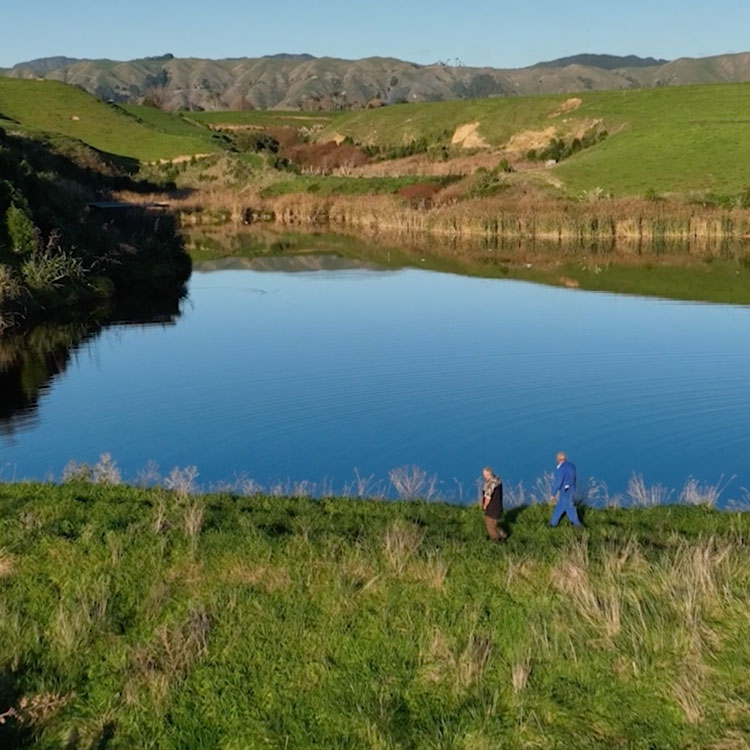
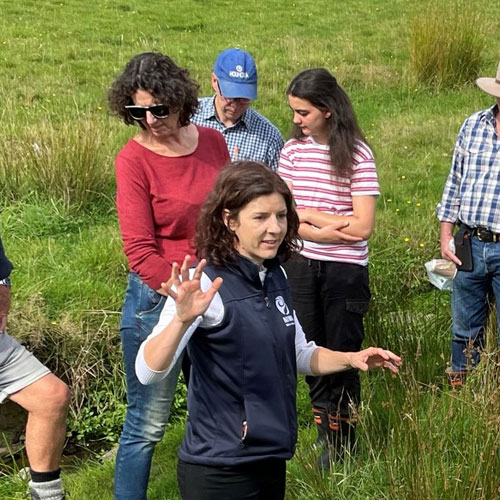
Encouraging stake-holder engagement
While ensuring that each catchment group has the necessary resources and support to implement their identified actions, the MRCC actively encourages stakeholder engagement. We bring in technical experts, facilitate collaboration, and promote the environmental achievements of the catchment groups. Installation of signage across the region allows people to easily identify the locations of these groups, fostering a sense of pride and community involvement.
For those interested in learning more about the catchment groups or becoming involved, the MRCC welcomes inquiries. Visit our contact page if you’d like to connect with like-minded individuals who share a deep commitment to caring for the land, water, and species within. By joining forces, these farmer-led catchment groups are making a remarkable impact and creating a sustainable future for generations to come.
Water testing sites
Currently the MRCC group have 69 water testing sites throughout our collective catchments area as shown on the map by the green dots. The red dots show the Horizons monitoring sites.
Click on the image to view a larger version of the map.
Map key
MRCC testing site
Horizons testing site
